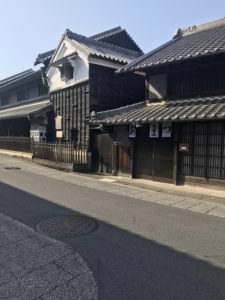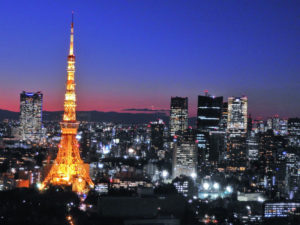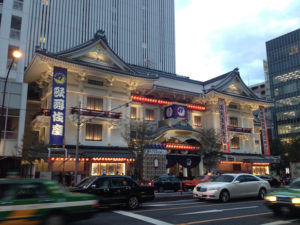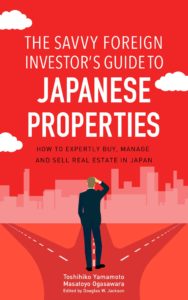JLL-Japan (JLL is an American professional services and investment management company specializing in real estate) recently held the conference in Tokyo with 400 participants from 250 companies.
JLL reported very bullish news about Tokyo market as follows:
“Tokyo overtook London as the world’s busiest real estate market in the first quarter of 2018, with mega-deals and an unusually positive economic outlook driving demand.
Investment volumes in the Japanese capital more than doubled to US$9.1 billion in the three months to March (2017: US$4.3 billion), just beating New York (US$9 billion) and way ahead of third-placed London (US$5.9 billion).
Global deal volumes rose 15 percent to US$165 billion, making the start of 2018 the biggest quarter for commercial real estate deals since 2007. Asia Pacific transactions rose 34 percent to US$40 billion.”
Tokyo will continue to see the many office construction sites till 2020 and it would make the rental growth slow but the rents have been steady and are still rising.
According to a report by the prominent Japanese real estate consulting firm ‘Sanki shoji’, the vacancy rate of offices in upscale locations in Tokyo as of September 2018 stands at only 2.33 percent (down 0.12 percent from the previous month) and the rents have been steadily rising in last twelve months.
(See the charts by Sanki shoji below)
(Average office vacancy rate in Tokyo)
(Average office rents in Tokyo)
*Please click to enlarge the file.
JLL announcement (in Japanese)
Sanki shoji web site (in Japanese)
The historical low rate of unemployment and relatively steady economy expansion seem to be boosting the demand of the office space.
In the meantime, from the global perspective, JLL also commented that the office yield spread (rate of return on the real estate) in Tokyo remains attractive at 2.9 percent in Tokyo, compared to 2.7 percent in London or around 1.7 percent in New York.
Domestic investors were very active in the first quarter and foreign investment accounted for only 17 percent of transactions. compared with 26 percent for the whole of 2017. Japanese real estate investment trusts (J-REIT) were also contributing to the growth of the market. JLL forecasts that national investment volumes set to increase 5 to 10 percent from 2017 to 4.3-4.5 trillion yen.
On the other hand, if you look at the residential market in Tokyo, real estate prices are also rising.
In Tokyo 23 wards, the prices of condominiums have risen by about 30% since the Tokyo Olympic Games was announced. Although there is a sense of overpricing among some market players, as we mentioned above, the market sentiment is still positive.
In response to these market conditions, some individual investors are saying
“Real estate is now in the time to sell rather than to buy.”
The investment by the individuals is atrophied due to the bank’s growing tightness of real estate loans for investment to salaried workers since Suruga Bank’s unlawful financing was discovered due to Kabocha-no-Basha scandals which was exposed in early 2018.
How should we see the market then ?
Looking at commercial rents in high-end retailers in the center of the city, that Ginza in the third quarter (July to September) had 275,000 yen per tsubo (3.3m2) and 215,000 yen per tsubo for Omotesando with no change from the previous term.
The owners are expected to raise some rents as a future prospect.
In the light of market dynamics, obviously those institutional investors would have upper hands due to the massively powerful financial background. Individual investors are not in the driving seat. And the yield in Tokyo is still in the attractive range for these institutional investors.
So in my opinion, the real estate investment market is expected to remain stable and difficult to expect any decline in the short run.
The institutional investors are also excited about the establishment of an integrated resort facility (IR) enforcement law including casino facilities as well as the enforcement of new minpaku law (private lodging law)
The casino’s economic impact as positive and in Singapore, for example, you see that the start of IR has made the economy progress and IR has become a tourist gateway.
IRs are increasing events, promoting tourism and the local economy as well,” .
I also found a cautiously optimistic article in Kenbiya web site (Kenbiya is the major listing web site of the properties for individual investors) .
According to the article, Hoop Partners(Japan) that develops real estate asset management, said, “Although the sellers are active in exiting, the buyers are facing the uncertainty of the market condition after the Tokyo Olympic Games are over.”
And the company said, “Investors who are actually purchasing real estate right now are looking at the market in the long term”. In other words, Hoops Partners is not necessarily bullish about the market in the short term.
Final thought
Institutional investors are also showing the liking that the ownership system (legal system) in Japan where anyone in the world can possess real estate is robust, the cost of financing when investing in the real estate is low. The impact of interest rate hikes has not yet been seen in Asian markets (not yet!) and investment funds are flowing abundantly. Country with the lowest capital cost among the developed countries and with good spreads (return) are not bad for investment timing. Overseas investors have chosen Tokyo as their favorite destination.
All in all, the foreign investors are bullish about Japanese real estate market 1) the market size for the premiums properties is large enough 2) investment funds can find the financing at a low cost, 3) and that the robust and transparent regulation system which underpin the market (institutional players don’t like the uncertainty). Looking back after the collapse of the economic bubble economy in 1980s, the Japanese real estate market has been remarkably influenced by foreign investors.Thirty years ago, the influx of foreign capital raised the land price, leading the real estate price to the very high level. And the market collapsed
foreign funds were withdrawn. In the light of the current bullish sentiment among the foreign investors, it can be said that market conditions will be sustained for the time being.
Maybe we should buy the investment property before the cap rate (yield) compression starts.

Other Helpful articles
Japan’s real estate price update: Price up for 3 consecutive years. Very strong growth in Tokyo buoyed by the booming inbound tourism
Is it end of booming real estate market in Japan ? : Kenbiya latest quarterly report June 2018
Where is the most attractive city to invest in Asia ? : CBRE institutional investors reports 2018
Toshihiko Yamamoto
Real estate investing consultant and author.
Founder of Yamamoto Property Advisory in Tokyo.
International property Investment consultant and licensed
real estate broker (Japan).
He serves the foreign companies and individuals to buy and sell
the real estates in Japan as well as own homes.
He holds a Bachelor’s degree in Economics from
Osaka Prefecture University in Japan
and an MBA from Bond University in Australia
Toshihiko’s book, “The Savvy Foreign Investor’s Guide to Japanese Properties: How to Expertly Buy, Manage and Sell Real Estate in Japan”is now out on Amazon, iBooks (iTunes, Apple) and Google Play.
About the book Amazon.com Link







2 comments for “Japan market update. How are big players betting ? : Is it in the state of bubble ?”